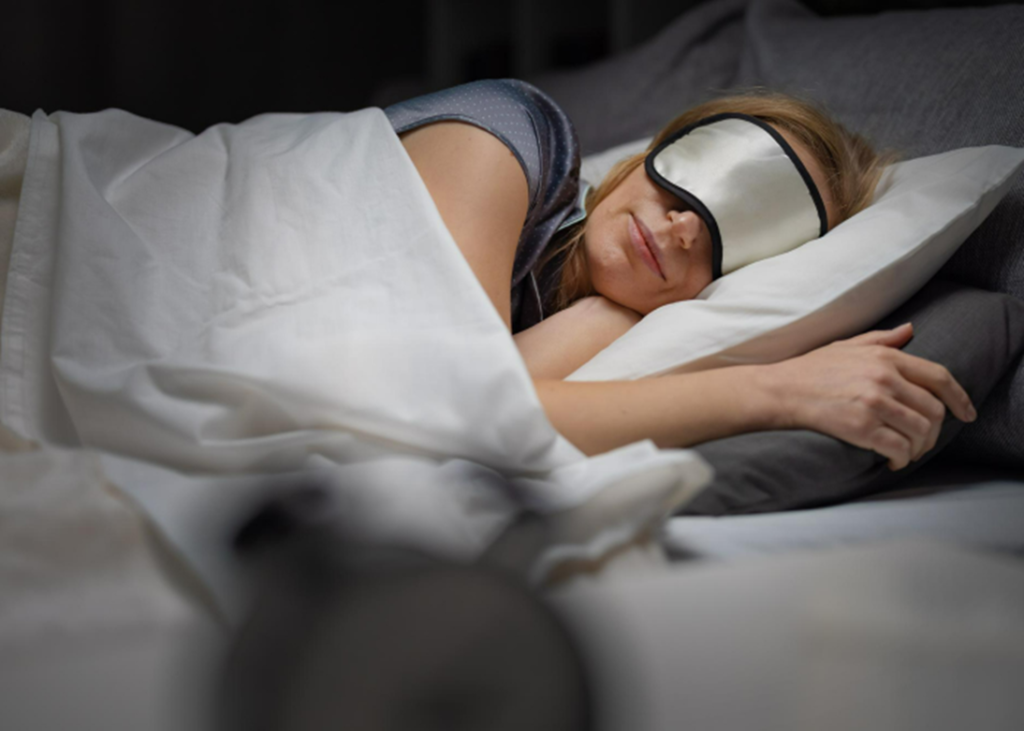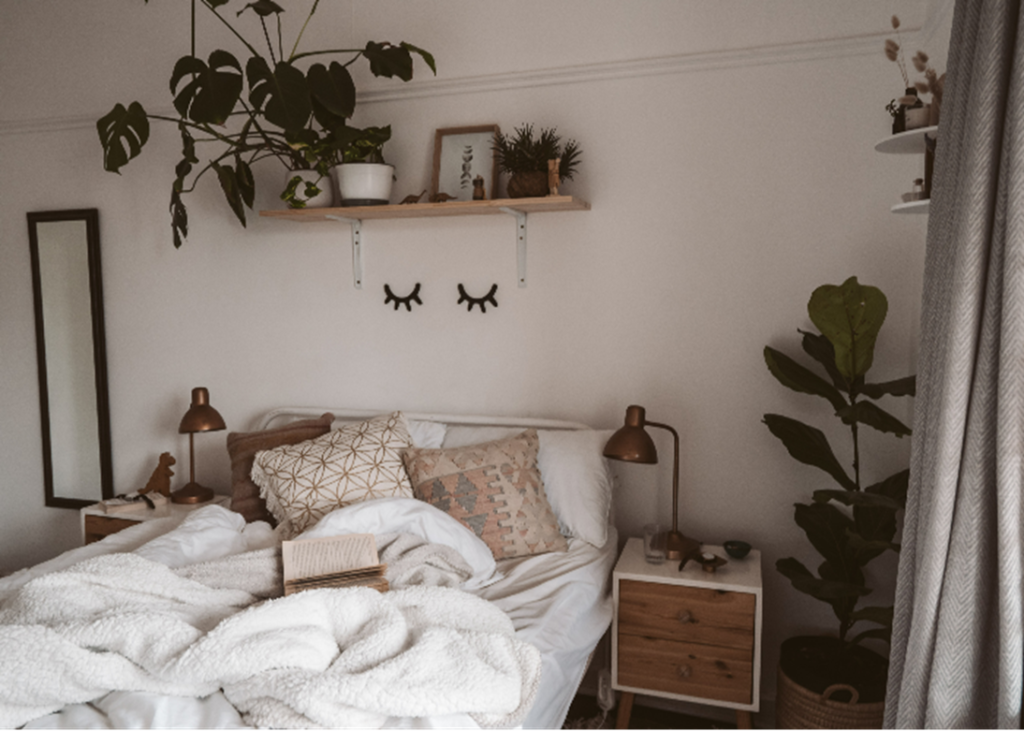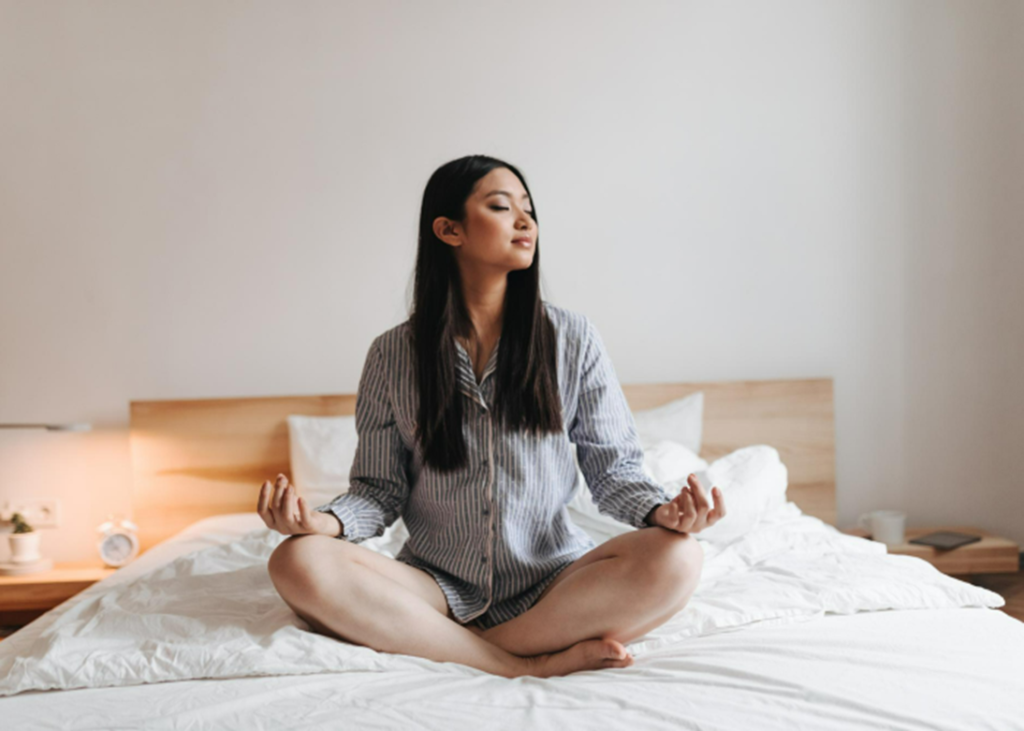Sleep has always been an integral part of our lives. Our day instantly turns into an energetic ride if we wake up after a night of adequate sleep. However, due to our busy lifestyle, it is quite challenging to have a consistent sleep pattern. Although we all understand the importance of getting enough sleep, we don’t always get as much quality sleep as we deserve. For our health, sleep is crucial. It allows our body to slow down and repair, purge, and regenerate. So, how may this be accomplished the best? Overall Sleep should be an amalgamation of both sleep time and sleep quality.
Why do you need quality sleep?
- Sleeping for enough hours is essential to keep your body in good health. When you sleep properly, you feel rested and energised every morning, and also decreases your daytime sleepiness and keeps your zest high all day.
- If you don’t sleep for enough hours, it impacts your physical and mental health, affecting your quality of life. Depending on the age and health conditions, everyone needs to sleep accordingly. During the sleeping hours, your body heals itself and gives more energy to you.
- Poor sleep quality leaves adverse effects on your health, which can risk stroke, heart disease, and high blood pressure. Also, sleep deprivation can make you feel anxious and irritated, causing difficulty in managing the everyday chores.
It should be quality time if you want to get the most out of your sleep. While it is uncommon to get a perfect night’s sleep every night, there are ways to increase the quality of your sleep.
1. NO SCREEN TIME BEFORE BED
In theory, bedrooms should be a relaxing space. It’s one of the few locations where you can actually “turn off” in the modern world. Eliminate the want to stay up late reading the news, responding to emails, or scrolling through Instagram. As if the distractions weren’t enough, all blue-light emitting LED screens interfere with your body’s circadian rhythms and reduce melatonin production. The best advice is obvious, just turn out the lights and pick up a good book to read for 30 minutes before you nod off.
Try this: Keep your phone far off from your bed, go back to bed, and take a few deep breaths to relax. It will help you sleep in no time.
2. GIVE UP CAFFEINE SX HOURS PRIOR TO BEDTIME

We concede that caffeine has its uses and is, for many of us, a necessary component of life! Given that we all adore coffee, quitting caffeine completely can be infeasible for some people. However, coffee throws off our circadian rhythm and internal body clock. When taken less than six hours before bedtime, even a little amount can have a significant negative impact on sleep quality. Then, how can you get deeper sleep?
Try this: Instead of caffeine, try chamomile tea to calm your nerves and sleep better.
3. USE EYE MASKS AND EARPLUGS

After a hectic day, thoughts can be overactive from the events of the day. It is natural to have trouble falling asleep due to over-thinking. Try some earplugs to drown out noise if you have trouble falling back to sleep. We advise trying our eye mask if you need one! They offer the same health advantages, have lovely patterns, and are as soft as silk. If you frequently travel and are unable to maintain a perfect schedule, both of these products are extremely necessary.
Try this: Listen to some sleep podcasts that can help you to doze off easily.
4. SET UP A MORNING RITUAL
Humans are habit-forming creatures. You may not be aware that it takes 20 days to form a new habit and 90 days to establish a lifestyle. Start keeping a sleeping pattern, and for the next 20 days, aim to wake up and go to bed at roughly the same time each day. Your body will begin to understand that this time is reserved for sleeping. Setting up morning rituals gives us that reason to get out of bed in the morning and get the day started without having to engage our brains too much.
Try this: Your routine doesn’t need to be complicated.To begin with, you can always start with simple tasks like getting up and making the bed in the morning.
5. MINIMISE MENTAL DISTRESS
Short-term and long-term mental stress might interfere with restful sleep habits. However, the quality of your sleep may be improved by making changes in your lifestyle to lessen stressors and strengthen your mind and body coping systems. It’s physically impossible for the body to be anxious and calm at the same time, so consider beginning a meditation practice to increase relaxation and enhance your capacity to utilise mindfulness to deter unpleasant ideas.
Try this: A technique that has been demonstrated to reduce stress hormones and improve physical symptoms of stress is maintaining a gratitude diary, which may help you focus on the good things in your life.
6. CHOOSE COMFORTABLE BEDDING

Ensure that your bed is comfy and comfortable! A comfortable bed requires a comfortable mattress, supportive pillows, and nice organic bedding, preferably made of organic cotton. We spend 30 percent of our lives on our bed so, make sure you spend on the best one. Investing in the best mattress wedge is one of the best decisions you can take to improve your sleep quality. Moreover, cosy bedding and sleep accessories can enhance your sleep quality instantly. Looking to improve your sleep with a new mattress or bedding? Buy mattress online and enjoy the job of peaceful sleep every night.
Try this: If you are unable to sleep due to your back pain issues, try an orthopedic mattress that can help you to relieve pressure on your back by providing enough back support and comfort.
7. RELAXING YOGA ROUTINE
Restorative yoga helps the mind and body unwind. In order to help you fall asleep fast and achieve a restful night’s sleep, yoga can provide some relief from the restlessness you experience when you lie down. Yoga is a great approach to encourage longer, deeper, and higher-quality sleep while preventing insomnia and encouraging deep relaxation.
Try this: Try yoga poses like, the wide-knee child pose, legs up the wall, corpse pose, and others, for 3 to 5 minutes before sleeping.
8. DON’T FORCE YOURSELF TO SLEEP
Do not go to bed if you are not exhausted. Being unable to fall asleep quickly can be irritating for your body and mind and may even cause you to wake up in the middle of the night.
Try this: Get out of bed and engage in a calming activity if you are unable to fall asleep after 20 minutes. When you are actually exhausted, go to bed.
9. MAKE A COMFORTABLE SLEEPING SPACE
Your sleeping space has a huge impact on the quality of your sleep. As a result, it is advised that you assess your bedroom and consider how to enhance it. Make sure your sleep environment is comfortable enough for restful sleep. Avoid using devices with strong lights in your bedroom, or cover them while you sleep. Try to keep your bedroom cool, ideally around 65 degrees, as people sleep best in cool environments. If that’s difficult, you can also use a cooling mattress.
Try this: Use dark curtains and draw them throughout the day. At night, leave the windows open.
10. AVOID LATE-NIGHT WORKOUT
Daily exercise may significantly enhance the quality of your sleep, but if you exercise too close to sleep, it might be difficult for your brain to settle down. Try to work out no later than two to three hours before bed.
Try this: Fix your workout time in advance to avoid any chaos at night.
11. NO EATING TWO HOURS PRIOR TO SLEEPING
Because it needs time to digest and absorb nutrients from food, your body cannot do this while you are sleeping. Therefore, avoid eating two hours before bed to enhance both metabolism and sleep.
Try this: Eat a light dinner and avoid overeating.
12. UNWIND BEFORE SLEEP

It is not advised to engage in a strenuous activity just before bed. Give your body time to unwind before going to bed by creating a nighttime routine. You can do a few relaxing activities each night. This can involve doing anything like journaling, meditating, having a hot bath or shower, or writing down your gratitudes. This will therefore get your body ready for sleep.
Try this: To enhance the quality of your sleep, try to include meditation in your evening routine.
It’s never too late to improve your sleep quality!
Our physical and mental well-being depends on getting enough sleep. By getting enough sleep, you can keep your body healthy and repair itself, avoiding conditions like high blood pressure and obesity. Additionally, getting enough sleep enables the brain to reset, which improves memory, learning, focus, social and emotional intelligence, and lowers the risk of depression.
An adult needs between 7 and 8 hours of sleep per night. Unfortunately, a lot of people have trouble sleeping because of things like night shifts, new babies, drugs, worry, sleeplessness, or simply an erratic, luxuriant lifestyle.
We didn’t want to keep our sleep advice a secret, so incorporate these effective ways into your daily routines to get better sleep.
Author Bio:
Saloni Sharma is a Mumbai based writer specializing in wellness, health, and lifestyle niches. She has a professional background in marketing content writing. When she’s not writing about her favorite topics and poems she usually has her nose stuck in a good book.


